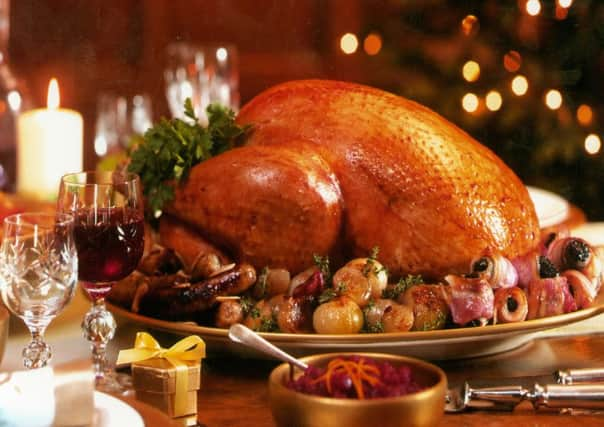Scots suffer 43,000 food poisoning infections every year


Launching its new festive food safety campaign, Food Standards Scotland (FSS), warns that over 500 people are admitted to hospital every year with serious food poisoning.
In total, 78 per cent of Scottish people don’t worry about getting food poisoning - despite 43,000 food poisoning infections, 5,800 GP visits and 500 hospital admissions across the country every year.
Advertisement
Hide AdAdvertisement
Hide AdThe new campaign is using tongue-in-cheek humour to get food safety messages across, and features Santa Claus stricken by a bout of food poisoning.
Shoppers and commuters across Scotland will also be targeted with food safety advice over the next two weeks with elves handing out campaign materials featuring useful tips.
It’s hoped the advice will lead to more people following the Four Cs of food safety: cleaning, cooking, chilling and avoiding cross-contamination, with specific advice on the storage, preparation and cooking of turkeys and leftovers.
This comes as the study reveals that 44 per cent of Scots don’t know how to store their food properly - greatly increasing the risk of cross contamination. While almost half (49 per cent) of Scots never use different chopping boards for raw meat and vegetables.
Geoff Ogle, Chief Executive of Food Standards Scotland warned poor preparation and cooking larger meals than normal is what can lead to illness.
He said: “Christmas is a time for all the family to come together and enjoy themselves, and food plays an important part of that.
“Home cooks are usually preparing larger quantities of food - from party snacks to turkey roast dinners. When you’ve got a lot to do in the kitchen and in a hurry you can take your eye off the ball when it comes to hygiene, and when that happens there’s more scope for things to go wrong.”
Research shows two-thirds of people learn to cook from a family member (77 per cent), suggesting good hygiene and food safety habits can be learned and passed down through generations.
Advertisement
Hide AdAdvertisement
Hide AdGeoff Ogle said there are number of simple things that people could do to help reduce food poisoning infections.
He added: “These should include allowing adequate time to defrost your turkey in the bottom of your fridge or somewhere cold: large turkeys can take a couple of days. If it’s not completely de-frosted it can mean inconsistent cooking through the bird and won’t get rid of bugs like campylobacter which can cause food poisoning.
“Also make sure it’s cooked through until the juices run clear, store leftovers in the fridge and eat them within two days unless they’ve been frozen, and re-heat them just once. And keep your fridge temperature at 0-5°C.”
